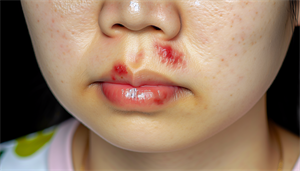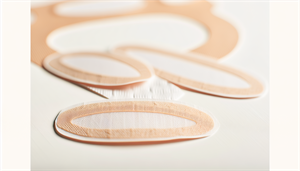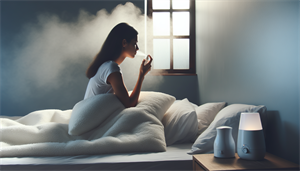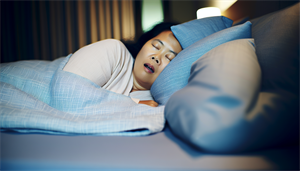Has the internet’s latest sleep hack caught your eye? The trend of mouth taping is turning heads and raising eyebrows. Let’s delve into the world of mouth taping to separate myths from facts and uncover the truth about this controversial sleep strategy: is mouth taping safe?
Key Takeaways
-
Mouth taping is practiced to promote nasal breathing during sleep, with the intention of improving sleep quality, reducing snoring, and increased oxygen intake, but should be done correctly using hypoallergenic tape to allow for safety.
-
Existing studies on mouth taping show benefits such as reduced snoring for individuals with mild sleep apnea, but more research is required to validate its overall effectiveness, and it’s not a solution for apnea episodes.
-
Mouth taping carries risks like skin irritation and breathing difficulties, especially for those with respiratory conditions. Alternative methods for better sleep include side sleeping, nasal strips, and managing allergies or asthma, and consultation with a sleep specialist is highly recommended before trying any sleep improvement techniques.
Understanding Mouth Taping

Mouth taping, as the name suggests, involves sealing the mouth shut during sleep. But why would anyone want to tape their mouths shut? The objective is simple - to encourage nose breathing. Nose breathing has several advantages over mouth breathing. The air we breathe through our nose is not just ordinary air. It’s heated, humidified, and filtered, which can reduce snoring and trigger our body’s stress-reducing parasympathetic nervous system.
If mouth taping piques your curiosity and you’re thinking of giving it a shot, make sure you do it correctly. Use a narrow piece of gentle hypoallergenic elastic mouth tape and apply it vertically. This method allows for some mouth movement and ensures a passage of air if necessary.
So what are the potential benefits?
-
Improved nasal breathing
-
Reduced snoring
-
Increased oxygen intake
-
Improved sleep quality
Give mouth taping a try and see if it works for you, especially if you tend to sleep with your mouth open!
Mouth taping can reduce mouth breathing, snoring, and promote nose breathing, enhancing your sleep quality and potentially addressing bad breath issues often associated with mouth breathers.
The Science Behind Mouth Taping
Research on mouth taping is in its infancy, and the limited studies available show varied outcomes. Some studies have found a reduction in snoring intensity, but more rigorous and extensive clinical trials are needed to determine its overall effectiveness. It’s always a good idea to consult a sleep medicine specialist for personalized advice.
A 2022 study found that individuals with mild sleep apnea, a less severe form of obstructive sleep apnea, who taped their mouths experienced reduced snoring intensity compared to nights without taping. A similar finding was reported in a 2015 pilot study. However, keep in mind that mouth taping didn’t successfully avert apnea episodes. Individuals still exhibited ‘mouth-puffing’ to restore breathing after an apnea episode.
Potential Risks of Mouth Taping

Mouth taping comes with its own set of risks. Skin irritation is one of the most common concerns. Allergic reactions, rashes, and general skin irritation may occur, particularly in individuals with sensitive skin.
Beyond skin reactions, there are potential respiratory risks. These include difficulty breathing and the worsening of conditions like sleep apnea.
Suffocation Concerns
While the risk of suffocation from mouth taping is low, it can lead to difficulty in breathing, especially for those with existing respiratory issues. If you have a pre-existing respiratory condition like sleep apnea or asthma, mouth taping can potentially worsen your symptoms, making it particularly risky.
When to Consider Mouth Taping
One should not use mouth taping as a replacement for professional diagnosis or remedy for sleep apnea. Seeking a doctor’s advice before attempting it is imperative. While mouth taping can alleviate symptoms of snoring or sleep apnea by promoting nasal breathing, it’s not a recommended treatment for these conditions.
Trying mouth taping without expert advice could expose you to risks like impaired breathing, interrupted sleep, and skin discomfort.
Alternative Solutions for Better Sleep
If mouth taping doesn’t suit you, don’t worry! There are alternative methods to enhance your sleep quality. These include side sleeping, using nasal strips or devices, and managing allergies and asthma.
Each of these alternatives serves to reduce snoring and enhance sleep quality in their unique ways.
Side Sleeping
Side sleeping can be beneficial for reducing snoring, and is effective for both people with and without sleep apnea. The science behind this is simple - when you sleep on your side, your airways align better, preventing the tongue and soft tissues in the throat from collapsing and blocking the air passage, a common cause of snoring.
Nasal Strips and Devices

Nasal strips and devices are another option to consider. These devices are designed to expand the nasal passages, improving airflow and reducing snoring by allowing for easier breathing during sleep.
One popular option is Breathe Right Nasal Strips, known for their effectiveness in reducing snoring and providing relief from nasal congestion.
Managing Allergies and Asthma

If you’re struggling with allergies and asthma, managing these conditions could also improve your sleep quality. Nasal congestion can be relieved by treating allergies and asthma, which in turn makes it easier to breathe through the nose at night.
Consulting a Sleep Specialist
Before you try mouth taping or any other sleep improvement techniques, it’s vital to seek advice from a sleep specialist or healthcare professional. They can offer appropriate treatments and recommendations tailored to your individual needs. When choosing a sleep specialist, look for someone with a proven track record and the right qualifications, such as completion of a sleep medicine fellowship program and certification by the American Board of Sleep Medicine.
Summary
In conclusion, mouth taping is a sleep hack that has gained attention due to its potential benefits for sleep quality. However, it’s not without risks and should not be tried without the guidance of a healthcare provider or sleep specialist. Remember that there are several alternative solutions for better sleep, including side sleeping, using nasal strips or devices, and managing allergies and asthma.
Frequently Asked Questions
Is mouth taping risky?
Yes, mouth taping can be risky as it may block your airflow and lead to breathing difficulties, sleep apnea, or skin irritation.
What do doctors say about mouth taping?
Doctors caution against mouth taping as it can restrict breathing, cause skin irritation, and limit movement, despite some limited research showing it may help with snoring and mild sleep apnea.
Should I tape my mouth when I sleep?
No, taping your mouth when you sleep is not recommended. It can be dangerous and lead to obstructed breathing and other sleep disorders.
Does taping your mouth help your jawline?
No, taping your mouth won't help your jawline as it's unlikely to change the bone structure, according to sleep experts and a plastic surgeon from Harvard Medical School.
What are the alternatives to mouth taping?
You can try side sleeping, using nasal strips or devices, and managing allergies and asthma as alternatives to mouth taping. These options can help improve nasal breathing and reduce the need for mouth taping.


